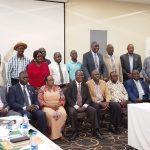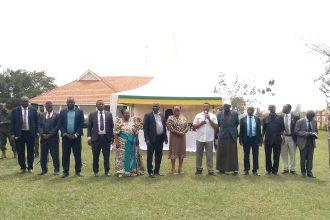By Abbas Araghchi — Foreign Minister of Iran
In just five meetings over nine weeks, U.S. Special Envoy Steve Witkoff and I achieved more progress than I had seen in four years of nuclear negotiations with the previous Biden administration. We were on the verge of a historic breakthrough.
To address Washington’s concerns over the peaceful nature of Iran’s nuclear program, we engaged in frank, detailed discussions—including about the future of Iranian uranium enrichment. Both sides, with support from Oman, proposed ideas that could lead to a mutually beneficial solution.
Equally significant were our discussions on ending sanctions and expanding U.S.–Iran economic cooperation. These talks represented a trillion-dollar opportunity—one that could have transformed Iran’s economy and simultaneously supported U.S. economic revival, particularly in declining industries like nuclear energy.
The diplomatic momentum was real. Messages were being exchanged regularly. But just 48 hours before a pivotal sixth meeting, Israel launched an unprovoked and reckless military assault on Iran. The attacks targeted safeguarded nuclear facilities, homes, hospitals, vital infrastructure—even prisons. Civilians, including academics and their families, were killed. It was a direct and deliberate blow to diplomacy.
Israel claimed its strikes aimed to stop Iran from developing nuclear weapons. That narrative is false. As a committed signatory to the Nuclear Non-Proliferation Treaty (NPT), Iran has consistently operated under UN monitoring and maintained a peaceful nuclear program.
Like any sovereign nation under attack, Iran defended itself. Israel, unable to sustain the confrontation, ultimately turned to President Trump for help ending the war it had triggered.
Having been betrayed in this way, Iran is now doubly cautious. Our restraint should not be seen as a lack of resolve. We will defend ourselves against any future attack—and if that time comes, we will reveal our full capabilities to dispel any illusions about Iran’s strength.
Let me be clear: the progress made between Iran and the U.S. was sabotaged—not by Tehran, but by a supposed American ally. The U.S., under pressure, chose to join in unlawful strikes, undermining both international law and its commitments under the NPT.
Recently, Iran has received signals suggesting the U.S. may be open to resuming talks. But how can we trust further engagement?
In 2015, Iran signed a comprehensive nuclear deal with six world powers, including the United States. Just three years later, Washington abandoned the agreement unilaterally. Once again, after reentering negotiations in good faith, Iran was repaid with military aggression—this time by two nuclear-armed countries.
Iran remains open to diplomacy, but we now approach it with well-founded caution. If the U.S. truly seeks peace, it must show real willingness to reach a fair and balanced agreement. Washington must also recognize that recent actions have shifted the landscape.
Iranians will never surrender. Our civilization has survived for millennia, overcoming foreign invasions and emerging stronger each time. We have always preferred peace, but it is we who decide when and how aggression against our people ends.
Negotiations held under the shadow of war are inherently unstable. Dialogue pursued under threat is not real dialogue. For diplomacy to succeed, it must rest on mutual respect and be free from sabotage by third parties who fear its success.
The American people deserve the truth: their country is being dragged into another avoidable and unjust war by a foreign regime that does not share their interests. As for Washington, it should understand that this aggression has only made our scientists and their achievements more precious to us than ever.
President Trump’s slogan of “America First” is, in practice, being twisted into “Israel First.” After decades of war, the loss of thousands of American lives, and trillions in wasted taxpayer dollars, it is clear that the American public is ready for a different path.
“The choice is America’s,” he concludes. “Will the US finally choose diplomacy? Or will it remain ensnared in someone else’s war?”




















